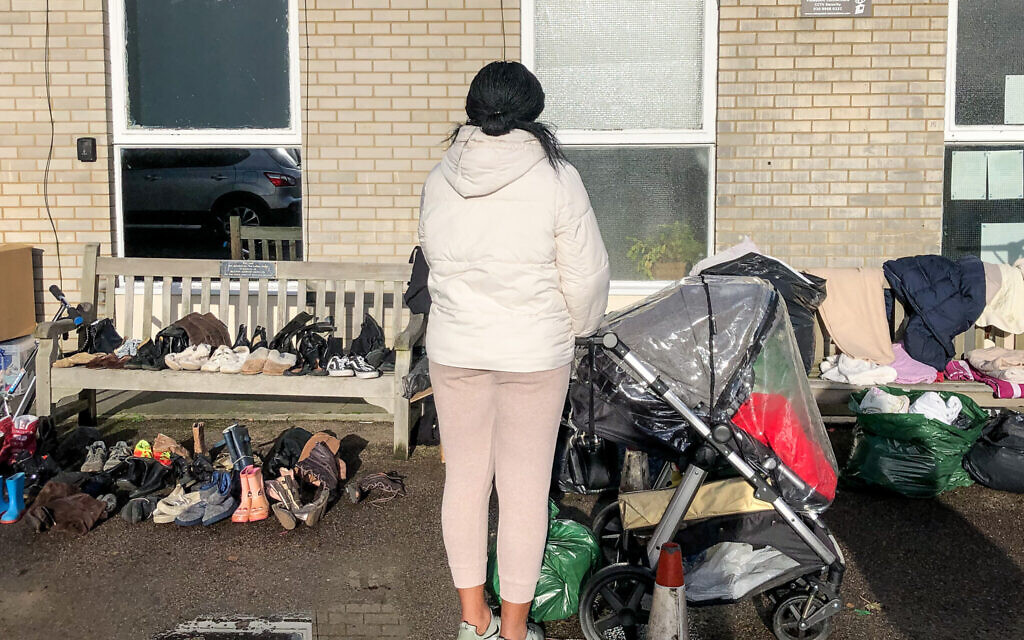The asylum seeker drop in centres changing lives, and attitudes about Jews
One recipient of the United Synagogue-run centres said: 'In Nigeria we believed Jews worshipped idols. I’ve learned Jewish people don’t discriminate. They listen and help us'
It’s a bright, sunny winter morning in Woodford Forest, and Kemi, from Nigeria, is talking about how she once regarded Jews.
We are standing in the courtyard of Woodford Forest United Synagogue. Kemi says: “In Nigeria we believed Jews worshipped idols, and that they only dealt with other Jews.”
Now Kemi’s daughter attends Ilford Jewish Primary School, and when a friend remonstrated with her that the little girl would be learning Hebrew, Kemi robustly replied: “So what? it’s good for her to learn another language” — adding — “I’ve learned that Jewish people don’t discriminate. They listen to us, and they help us.”
Get The Jewish News Daily Edition by email and never miss our top stories Free Sign Up
Kemi is just one of the hundreds of asylum seekers, mainly women, who come to the United Synagogue’s drop-in centre in Woodford Forest. Pre-Covid, the centre operated out of Woodford Forest and Hendon synagogues, on a monthly basis: but government regulations and Covid restrictions have meant a radical shift in service and policy. Now it’s Woodford Forest only, and it’s a weekly event, in order to help the same number of people.
Under the supervision of Yael Peleg, director of strategy and development at the US, and fieldworker Hannah Gerson, a team of devoted volunteers do whatever they can to help the asylum seekers.
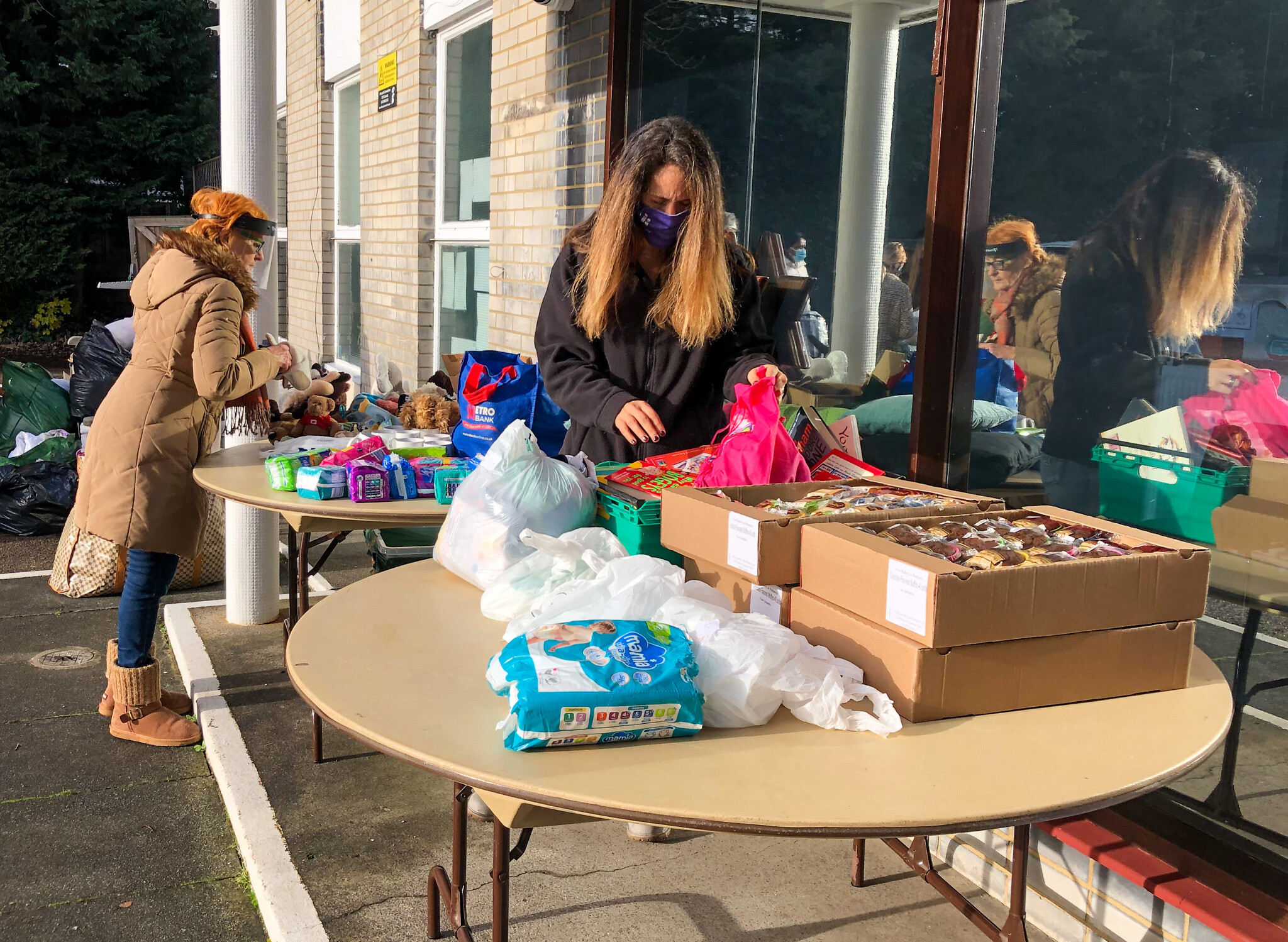
Most of the women and their children live in cramped accommodation; they need basics such as food, clothes and essential toiletries, with nappies and feminine hygiene items high on the list.
Once, in pre-Covid days, the asylum seekers could sort through the items for themselves; now the volunteers pack up bags of clothing in the right sizes, shirts and trousers according to age groups, and hand them over.
Food is another area which has changed dramatically as a result of the pandemic. Previously all the asylum seekers — who travel from all over London to get to the drop-in centre — would sit down for a hot lunch with the volunteers. There was chat and socialising and laughter. Now the volunteers make 150 meals every Tuesday in Woodford Forest synagogue’s vast and well-appointed kitchen, pack them up in containers, and hand them out to the women.
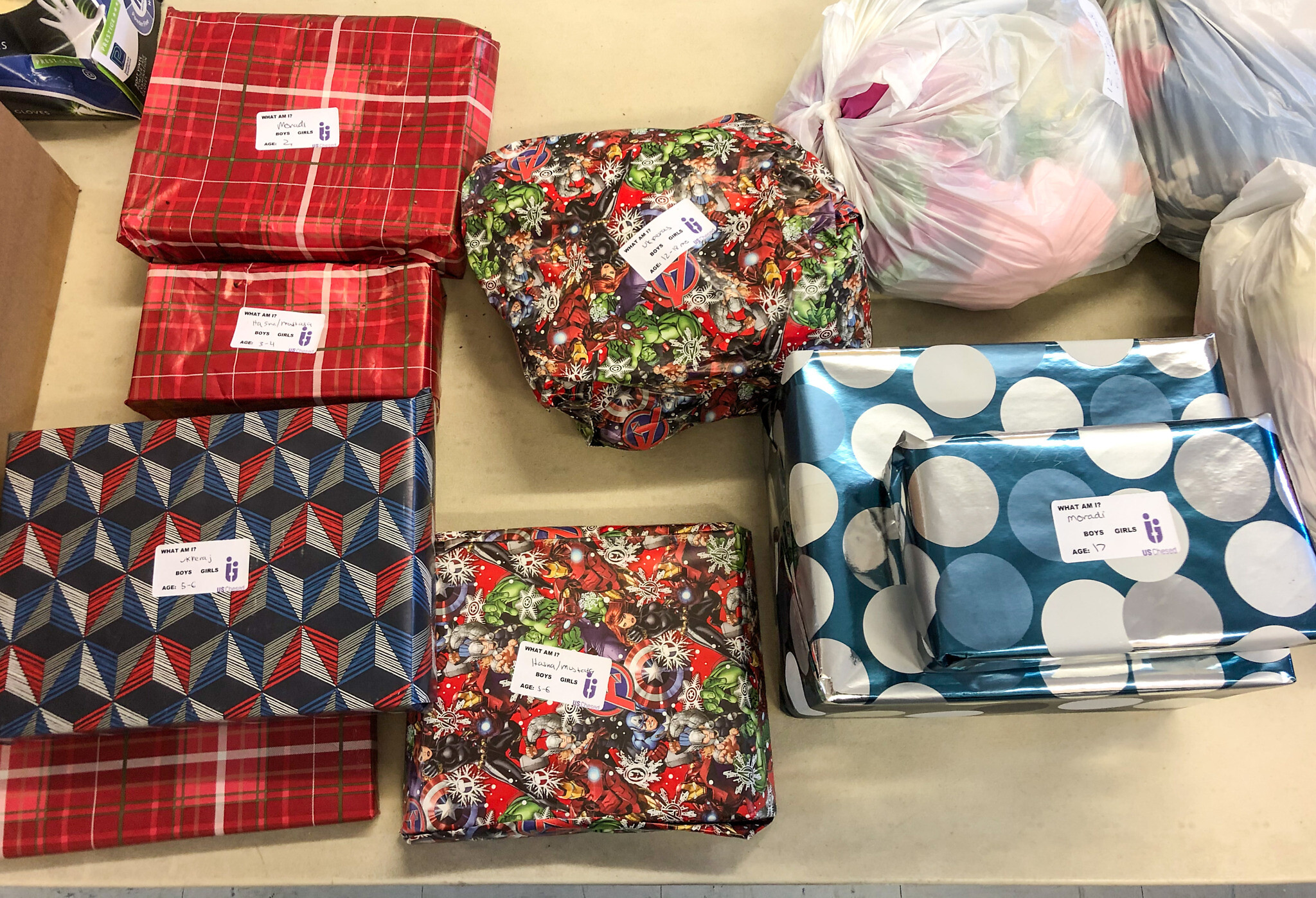
The drop-in centres, explains Yael Peleg, “were the first social responsibility project of the United Synagogue”, and they have been running for two years. They operate in co-ordination with asylum seeker centres under the auspices of the Masorti, Reform and Liberal communities.
People are designated asylum seekers as soon as they arrive in Britain; they are not allowed to work, receive a tiny subsistence allowance, and spend their time applying for leave to remain and to be designated “refugees”, a status which can take some time to achieve. The Jewish drop-in centres used to provide free legal and medical advice, but they have been shelved during the Covid restrictions — primarily because the discretion and sensitivity of the information would require a breach of social distancing regulations, and nobody wants to stand outside talking loudly about their private issues.
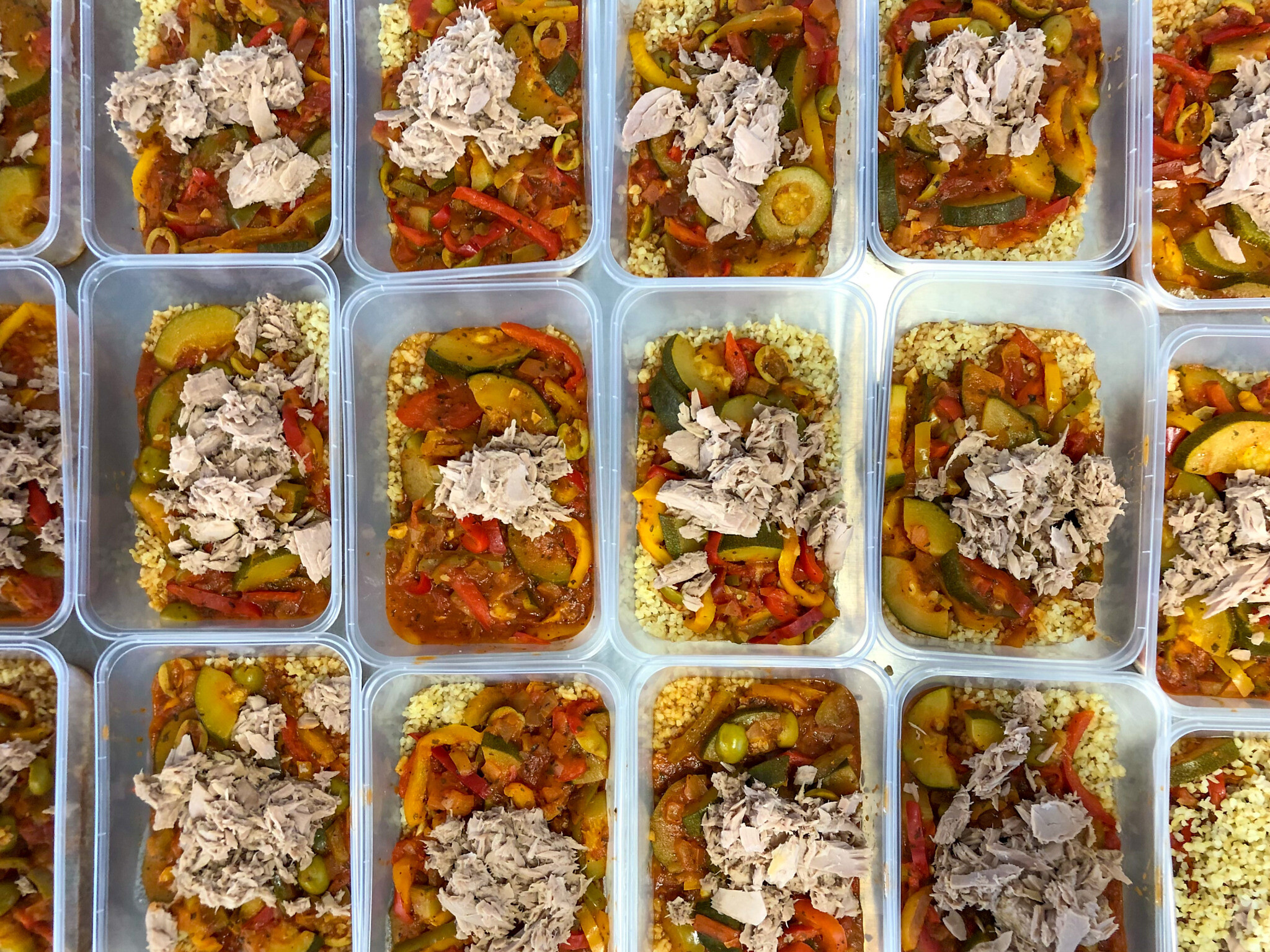
But even under such difficult circumstances, the volunteers and the asylum seekers get on well. The asylum seekers now have to book time slots and come in two at a time, rather than surging in all together as they used to do every month. They come from more than 30 different countries — Nigeria, Somalia, Iran, Iraq, Afghanistan, and most recently a large number of Albanians.
“We only take women who have children under 16,” says Yael Peleg. “There are very few men on the scene”. Each case is subject to stringent vetting to establish that they are who they say they are, usually by contact with the caseworker or lawyer assigned to them when they arrive in the UK.
Roma* is from Namibia and says: “It’s a very important place for me to come. Covid isn’t the only thing killing us. We are starving, and the food we get here makes a huge difference.” Like the other asylum seekers, Roma gets from Woodford Forest a reimbursement of her travel expenses and a £15 Tesco voucher. She heard from a friend about the drop-in centre when she first arrived in Britain, and now she is a regular attender, Covid or no Covid. “They are saving people’s lives,” she says. [*Roma is not her real name. It has been changed to protect her identity]
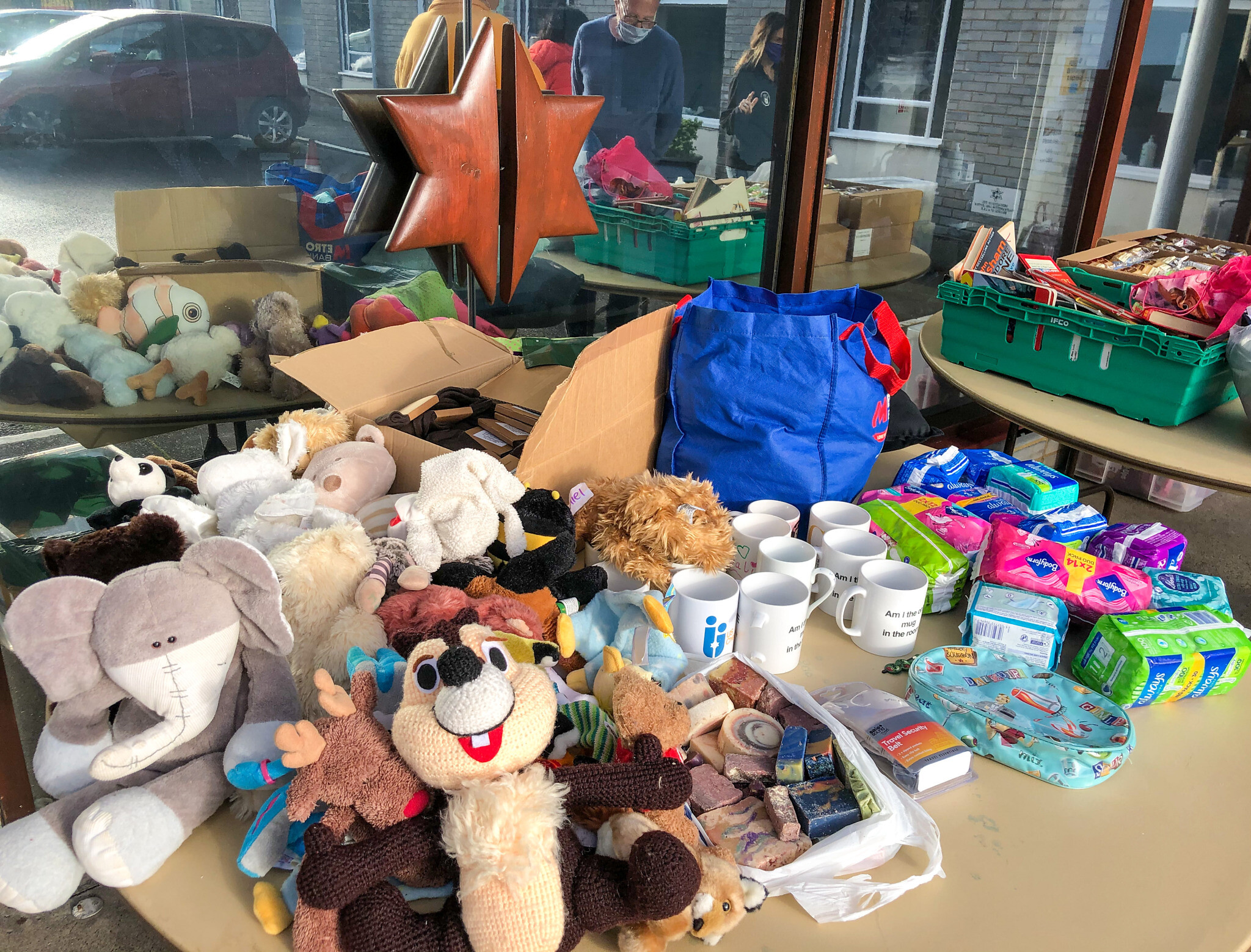
Mariam is from Chad and — as far as I can tell behind the regulation mask — is one big grin as she wheels her daughter’s baby buggy in to the courtyard of the shul. “I’ve just been granted leave to remain”, she says, having arrived in Britain in October 2018 after her husband had to flee from political opponents in Chad. She was told about the centre by other people in the hostel she stayed in when she first arrived. “It’s a lifeline,” she says.
Because it’s Chanukah and soon to be Christmas, the volunteers have an extra task this week — wrapping up a huge array of presents for the asylum seekers’ children. The group are determined to make the families feel the warmth of what they are doing, and want the children to have toys and gifts so that they can tell their schoolmates that they, too, are celebrating. The mainly Muslim families don’t care that they are being helped by Orthodox Jews — they just appreciate the help, from whatever source.
The Woodford Forest site is awash with donations from community members — even a shed on the site to contain bags of clothing has been donated. But the US’s latest scheme allows people to help from the comfort of their computers — http://theus.org.uk/toiletries — which takes the user straight to an Amazon wish list and allows the donor to buy much-needed essentials, from tooth brushes to deodorants.
“We all have so much stuff”, Yael Peleg says, “and these people have nothing. This is an easy way to help”.

Thank you for helping to make Jewish News the leading source of news and opinion for the UK Jewish community. Today we're asking for your invaluable help to continue putting our community first in everything we do.
For as little as £5 a month you can help sustain the vital work we do in celebrating and standing up for Jewish life in Britain.
Jewish News holds our community together and keeps us connected. Like a synagogue, it’s where people turn to feel part of something bigger. It also proudly shows the rest of Britain the vibrancy and rich culture of modern Jewish life.
You can make a quick and easy one-off or monthly contribution of £5, £10, £20 or any other sum you’re comfortable with.
100% of your donation will help us continue celebrating our community, in all its dynamic diversity...
Engaging
Being a community platform means so much more than producing a newspaper and website. One of our proudest roles is media partnering with our invaluable charities to amplify the outstanding work they do to help us all.
Celebrating
There’s no shortage of oys in the world but Jewish News takes every opportunity to celebrate the joys too, through projects like Night of Heroes, 40 Under 40 and other compelling countdowns that make the community kvell with pride.
Pioneering
In the first collaboration between media outlets from different faiths, Jewish News worked with British Muslim TV and Church Times to produce a list of young activists leading the way on interfaith understanding.
Campaigning
Royal Mail issued a stamp honouring Holocaust hero Sir Nicholas Winton after a Jewish News campaign attracted more than 100,000 backers. Jewish Newsalso produces special editions of the paper highlighting pressing issues including mental health and Holocaust remembrance.
Easy access
In an age when news is readily accessible, Jewish News provides high-quality content free online and offline, removing any financial barriers to connecting people.
Voice of our community to wider society
The Jewish News team regularly appears on TV, radio and on the pages of the national press to comment on stories about the Jewish community. Easy access to the paper on the streets of London also means Jewish News provides an invaluable window into the community for the country at large.
We hope you agree all this is worth preserving.
-
By Brigit Grant
-
By Laurent Vaughan - Senior Associate (Bishop & Sewell Solicitors)
-
By Laurent Vaughan - Senior Associate (Bishop & Sewell Solicitors)
-
By Laurent Vaughan - Senior Associate (Bishop & Sewell Solicitors)
-
By Laurent Vaughan - Senior Associate (Bishop & Sewell Solicitors)


